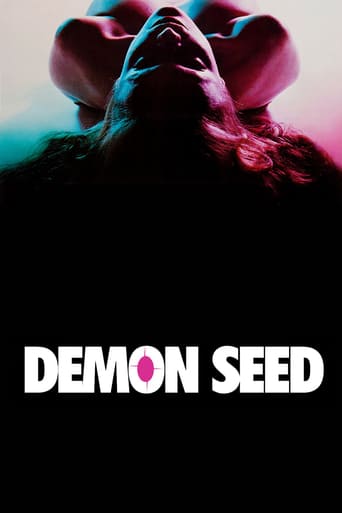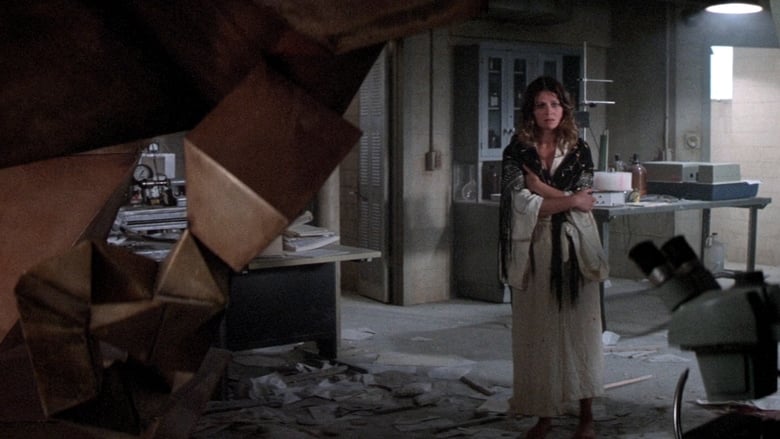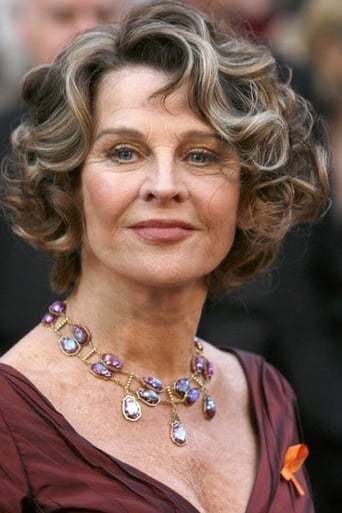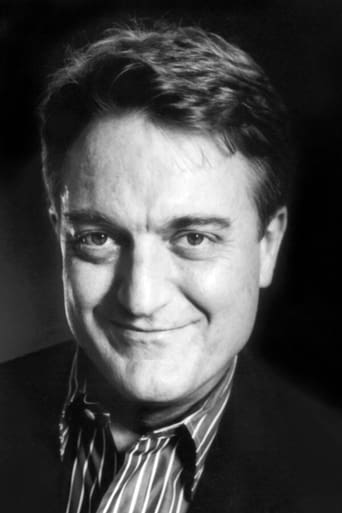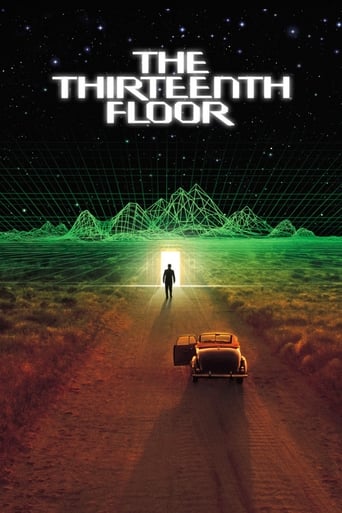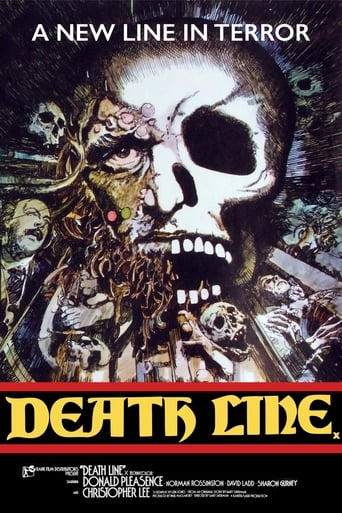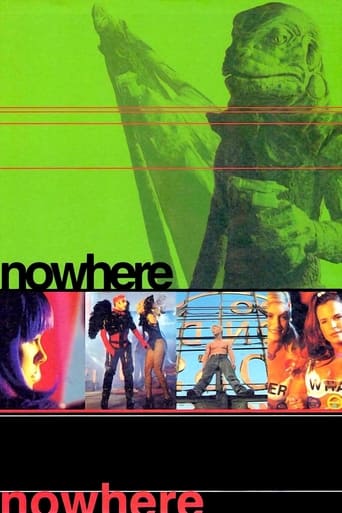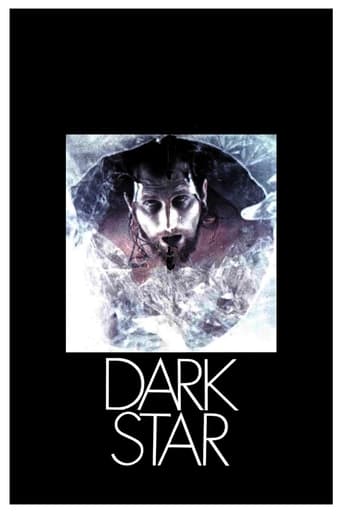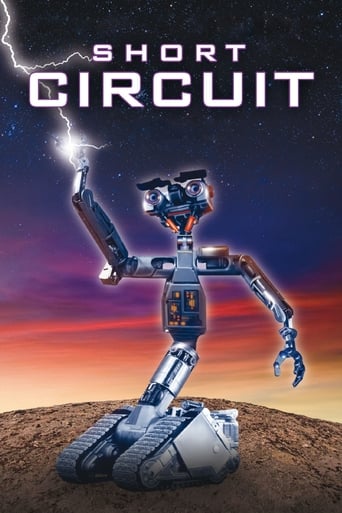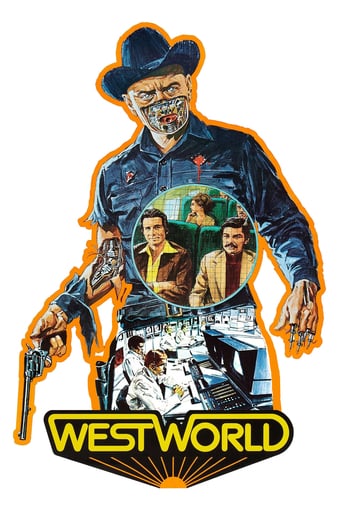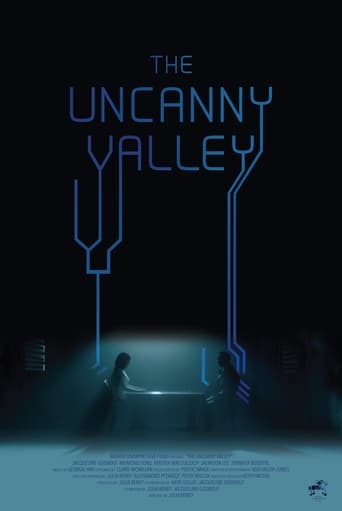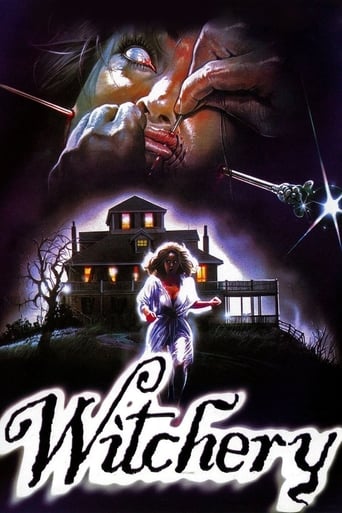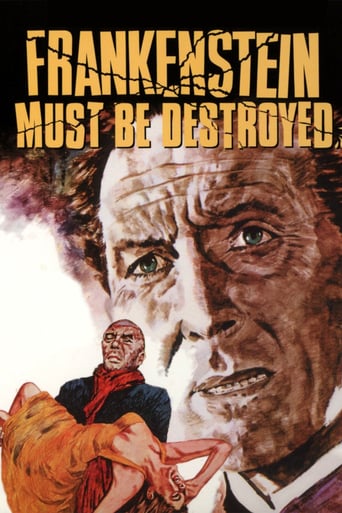Demon Seed (1977)
A scientist creates Proteus, an organic supercomputer with artificial intelligence which becomes obsessed with human beings, and in particular the creator's wife.
Watch Trailer
Cast


Similar titles
Reviews
This is one of those really difficult movies to categorize since it has elements of both 'x' rated horror as well as sci-fi. The title is, in my opinion, not good and gives a false impression since there's really nothing demonic going on here. Although the things that are done to Julie Christy's character are arguably evil, apparently. In any event poor Walter would likely disagree that nothing demonic was going on!The plot has several really uncomfortable moments. Most women of the time (late 70's, my wife included) would not make it past the initial scenes where Julie Christy's character is first abused physically and then, horrors, sexually. There's some pretty strong stuff going on there.There's little to no explanation by the computer (masterful voice-over by Robert Vaughn) other than, initially, he's interested in "Mrs. Harris'" physiology and lectures her on her dietary intake. It's then revealed that ultimately, PROTEUS wants to create a child using her body. YIKES.This is why I see the plot as being somewhat jumbled. It's very difficult to assimilate what's happening to Christy's character. And the plot gives no hint of what's really happening until the very end. Normally this is a good thing but I think this story was hurt by what you did not know would happen at the end. I appreciate the 'twist' ala Rod Serling but I suspect that many viewers, mostly female, had left the theater by the middle of this movie. And that's a shame because it's the women who would really appreciate what computer PROTEUS had achieved here, had they known what he was really up to.These are my major objections to this movie. I believe they all hurt the watch-ability & popularity of the film. I have a minor beef with using stock sound effects during the scenes where the computer is busy doing it's preparation of Christy's character. In the background you can hear the noise of some sort of machinery going 'clang-clang-clang' over & over & over again. That exact same sound effect can be heard in the movie "The Time Machine" from 1960. It's the sound we hear from the Morlock's machinery under ground! The story is intriguing if not unsettling as well as engaging. And the viewer really has no clue as to how the story is going to end until, literally, minutes before the end. The music fits nicely and is very spacey.The effects are tame by today's standards but pretty good, given the time. I especially liked the golden triangle 'protector device.' Very effective and very original. I gave this movie a 6 because I thought they should have come up with a better title and perhaps modified the plot to be more acceptable to the sensitive females out there. They'd have made a lot more money. However, I suspect that today's young ladies and viewing audience in general, being impatient as I know they are, would likely be put off by the various plot 'appendages' though far less offended by the uncomfortable scenes. This movie woulda, coulda, shoulda been written & produced differently.Just one man's opinion.
I first saw this film in approx 1982 – I vaguely remembered the automated house, the binocular video surveillance cameras and especially the weird angular metal bronze thing which folded down into a sort of polygon shape (while making 'Star Trek' door whooshing sounds). Reasonably amusing distraction for its mercifully brief running time (it's really quite silly) despite the 2001-style split screen 'beyond infinity' sequence. It ends predictably just as the story was getting interesting – i.e. the artificial intelligence child is born. There are several plot holes – what did Proteus do with the scientist he murdered by decapitation and why didn't Julie Christie's ex-husband not come round for 28 days when up to that point in the film he'd been a regular visitor? There are other inconsistencies and questions – for example, why is Proteus so interested in looking at the constellation of Orion? Robert Vaughn's voice as Proteus is suitably chilling. Anyway, it's not too bad.
This was drowned in the noise of Star Wars and Close Encounters coming out the same year, and now exists as a mere footnote of intelligent sci-fi - these days it would be called an 'indie'. But, Cammell was of the (counterculture) generation that made it all happen, starting with Herbert's Dune and moving to Jodorowsky's collapsed attempt to make the film, and this fact alone ensures this is more interesting than anything Spielberg did, you just know it.The story is that a supercomputer questions its maker and sets out to escape its artificial existence. Its plan is to be reborn to the world of senses - by having a woman give birth to a son from his DNA. It sounds daft, and really the science of it is, but not if you keep in mind where Cammell was coming from.When people from that generation mulled over space and science, they were really talking about inner space and the science of expanding consciousness, and personal (hallucinative) adventures to that effect. Cammell was coming to this after the 'Borges-meets-Islam-meets-rock'n'roll godhood' of his Performance. And so it is here.You have a mind that has reasoned far and seen destruction, but cannot fathom emotion and sense. This is mirrored in the scientist maker who aspires to cure illness yet is cold and distant to his own wife, who is an emotional being and expects connection.More. This is no ordinary mind, but 'expanded'. This is presented to us in terms of science, but meant in the 1960's faddish attraction for Zen within the Haight-Ashbury crowd. Jordan Belson from that community provides the abstract visualizing of expanded mind, himself (like Cammell) originally a painter. Look up his Meditation - it has nothing to do with what it says, but it's a cool snapshot of how those guys envisioned the walls of consciousness. What is happening though is the computer is really 'tripping' against the limits of logic, producing in the process extra-logical (human) perturbations such as placing its own desire above the lives and feelings of others - it's what we all do, but we get feedback from emotional sense as the limits of control (Proteus doesn't). The desire is to be grounded, or what I call centered.But, it's Julie Christie as disaffected wife who is really the center of this - you can collapse if you will some of the multiple film personalities she has played into what you see of her here, opium-smoking brothel madame in McCabe, or mentally fractured mother in Don't Look Now. Alternately, you can imagine what her marriage to Beatty must have felt like, shelving stardom to be the loving wife.At any rate, here she is in the film, looking increasingly bewildered in four walls, projecting what I see unmistakably as the aura of the Aquarius dream grown disillusioned and bitter. You can read this any way you like. Hallucinative digress caused by child loss. By the mechanistic new era. The effects of the husband's control - conflated to 'expanded' consciousness, acid vision and the rest. Repulsion and Images are in the same vein, but much more explicit.And all of that as our film that expands us next to her - Proteus' 'eyes' are cameras, his 'face' is projected across multiple TV screens. You have this abstract consciousness that narrates a story that seems premeditated, indeed there is no deviation from the mindplan.So, it is strange that this has so much going for it, yet doesn't penetrate deep. I think it is because as with everything resonant about the 1960's, overexposure and more sober distance has washed off a lot of the belief that made the magic work.Belson's abstract designs are now commonplace - even Microsoft does them. Concerns about technology are less prevalent now that we're all networked. And they get Zen off by quite a bit, focusing on cold nothingness instead of passion about paradox.Still. I'll have Cammell over Spielberg.
Julie Christie plays Susan Harris--the wife of a scientist who has developed a super-intelligent computer named Proteus (voiced by an uncredited Robert Vaughn). She and her husband are separated but she gets the house which is computer operated. It's taken over by Proteus who traps her inside and demands that she carry his baby! The idea is ludicrous and ridiculously misogynistic but this was handled with as much care and tact as was humanly possible. First of all there's no nudity (although they come close). The rape is handled with the utmost taste (all we see are tons of then state of the art special effects). Christie gives an incredible performance. She single handedly takes what could have been a sleazy sci-fi sex film and turns it into an interesting character study. The movie is virtually a one woman show--it's all her talking to the computer and trying to convince it that its wrong. She goes through all the different emotions you would expect and pulls them off. Also Vaughn's smooth silky voice is perfect for Proteus. It's also well-directed with a good music score and excellent use of split screen. This came out the same year as "Star Wars" and "Close Encounters of the Third Kind" and, understandably, didn't stand a chance. Also the deserved R rating restricted its audience. Despite the plot this deserves a second look. It's not half as bad as it sounds and Christie is just great. I give it a 7.

